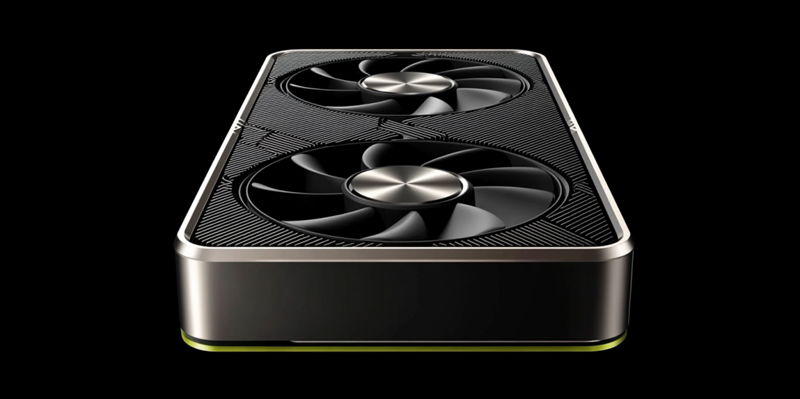NVIDIA, a global frontrunner in AI technology and GPU manufacturing, has joined forces with Foxconn, a giant in electronics manufacturing, to create Taiwan’s most powerful AI supercomputer. The collaboration, which was recently unveiled, is set to position Taiwan as an international leader in AI-driven industries, significantly boosting computational capabilities in fields such as medical research, smart city technologies, and AI applications. This ambitious initiative focuses on utilizing NVIDIA’s cutting-edge Blackwell GB200 NVL72 servers to achieve unprecedented levels of AI-enhanced performance and computational power.
Strategic Partnership and Vision
The strategic alliance between NVIDIA and Foxconn marks a bold move to propel Taiwan to the forefront of AI industries worldwide. By leveraging NVIDIA’s Blackwell GB200 NVL72 platform, which combines Grace CPUs and Blackwell data center GPUs, this partnership aims to create unparalleled computational power on the island. James Wu, Foxconn’s Vice President and spokesperson, emphasized the profound impact this supercomputer would have on various sectors, highlighting its efficiency and advanced AI capabilities. This alliance is not just about technological advancement but also about enhancing Taiwan’s strategic positioning in the global AI landscape.
Situated in Kaohsiung, the supercomputer is expected to deliver over 90 exaflops of AI performance, a historic milestone for Taiwan. The substantial computational power it promises aligns seamlessly with Foxconn’s three-platform strategy that emphasizes manufacturing, urban services, and electric vehicles. Through this comprehensive strategy, the AI supercomputer is envisioned as more than a technological marvel; it is a strategic asset that could fundamentally transform Taiwan’s quest for global AI competitiveness. Such a feat is anticipated to open new avenues for innovation and economic growth, attracting investments and fostering advancements in high-performance computing capabilities.
Technological Foundation: NVIDIA’s Blackwell GB200 NVL72
At the heart of this groundbreaking project is NVIDIA’s Blackwell GB200 NVL72 platform, a beacon of high-performance computing. These servers are engineered to house immense computational capacity and efficiency. Each server rack can accommodate up to 36 Grace CPUs and 72 Blackwell GPUs, interconnected through a 72-GPU NVLink domain. This setup enables the platform to achieve up to 3240 TFLOPS (Floating Point Operations Per Second) of FP64 and FP64 Tensor Core performance, making it a powerhouse of computational capabilities.
One of the most notable features of this platform is its memory prowess. With up to 13.5 terabytes of HBM3e memory and a bandwidth of 576 terabytes per second, the supercomputer is designed to handle colossal datasets with unparalleled efficiency. This advanced infrastructure ensures that tasks such as Large Language Model (LLM) inferences are 30 times faster and LLM training is four times more effective compared to previous #00 GPUs. Moreover, the GB200 NVL72 platform is 25 times more energy-efficient, highlighting the critical balance between performance and sustainability. Such advancements set new standards for high-performance computing, aiming to meet the growing demands of AI and computational tasks.
Impact on Various Sectors
The far-reaching implications of this supercomputer’s capabilities are poised to revolutionize multiple sectors significantly. In the healthcare domain, the supercomputer will enable high-speed calculations and simulations necessary for complex tasks like cancer research. By processing vast datasets quickly, it can considerably accelerate medical discoveries and treatments, offering new hope in combating various diseases. High-performance computing in healthcare thus promises quicker, more accurate results, leading to groundbreaking advancements in medical science.
Urban management and smart city technologies will also reap substantial benefits from this endeavor. Foxconn plans to deploy AI-assisted services and solutions that leverage the supercomputer’s vast computational power. Advanced technologies such as NVIDIA Omniverse, Isaac robotics platforms, and Digital Twins will significantly enhance urban planning and management. These tools will contribute to making cities more efficient, safer, and adaptable to future trends. The integration of AI in urban settings can lead to smarter, more responsive infrastructures that can anticipate and address civic needs with unprecedented precision.
Timeline and Phased Deployment
The implementation of this ambitious project is structured in phases, with an initial launch expected by mid-2025 and full deployment targeted for 2026. This phased approach ensures that every aspect of the supercomputer’s integration is meticulously optimized for maximum performance and efficiency. It underscores a comprehensive plan to incorporate the supercomputer into existing AI and computational frameworks seamlessly, avoiding any disruptions and ensuring a smooth transition to this new level of technological capability.
This systematic deployment will involve rigorous testing and gradual scaling to meet the peak performance requirements. By the time the supercomputer becomes fully operational, it will not only stand as a technological asset but also as a catalyst for innovation and economic growth in Taiwan. The successful deployment of this supercomputer is likely to attract global interest and investments, solidifying Taiwan’s reputation as a hub for cutting-edge technology and high-performance computing.
Global Significance and Future Prospects
NVIDIA, a trailblazer in AI technology and GPU manufacturing, has teamed up with electronics giant Foxconn to develop Taiwan’s most advanced AI supercomputer. This landmark partnership, announced recently, aims to elevate Taiwan to the forefront of global AI-driven sectors by significantly enhancing computational capabilities in areas like medical research, smart city initiatives, and various AI applications.
Leveraging NVIDIA’s state-of-the-art Blackwell GB200 NVL72 servers, this collaboration is set to push the limits of AI-enhanced performance and computational power to new heights. This venture will empower Taiwan to lead in technological innovation, making substantial contributions to the global AI ecosystem. Advanced computing will drive breakthroughs in disease detection, efficient urban management, and numerous AI-based solutions, positioning Taiwan as a hub of technological expertise.
With this cutting-edge supercomputer, Taiwan will not only improve its own technological landscape but also set a benchmark for international AI developments, underlining its role as a key player in the AI industry.

